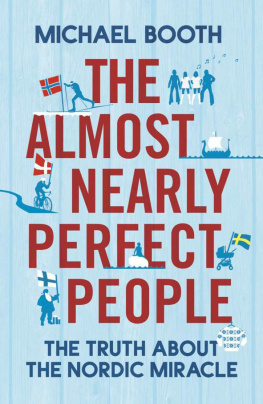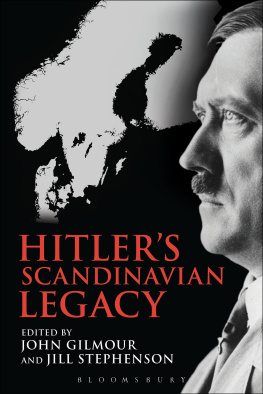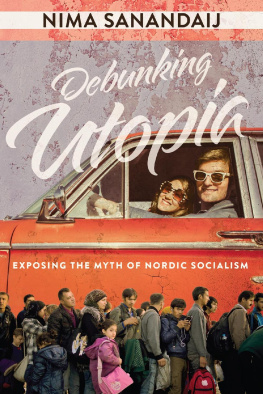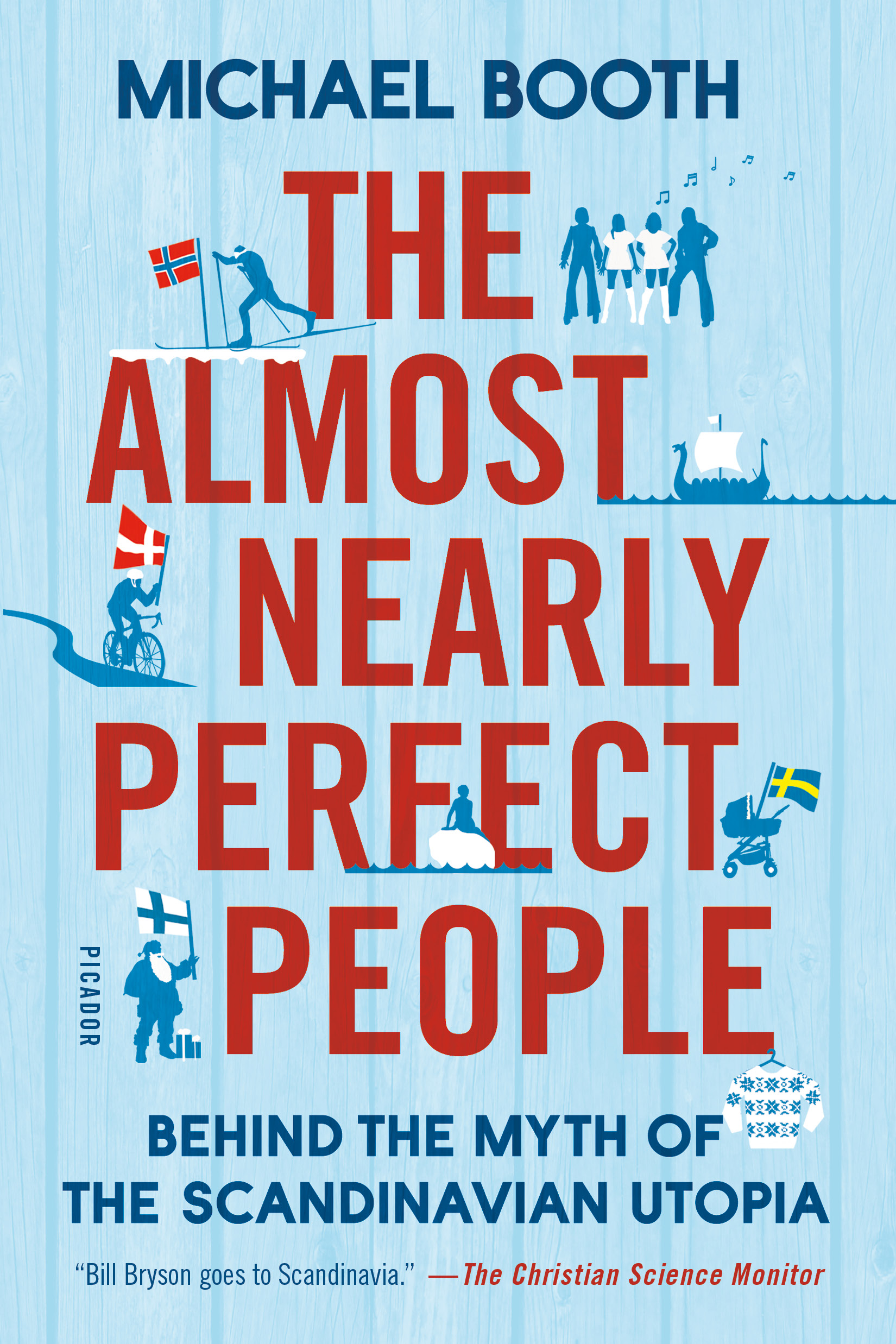Contents
Guide

The author and publisher have provided this e-book to you for your personal use only. You may not make this e-book publicly available in any way. Copyright infringement is against the law. If you believe the copy of this e-book you are reading infringes on the authors copyright, please notify the publisher at: us.macmillanusa.com/piracy.
To Lissen, Asger, and Emil
CONTENTS

Early one dark April morning a few years ago I was sitting in my living room in the Danish capital, Copenhagen, wrapped in a blanket and yearning for spring, when I opened that days newspaper to discover that my adopted countrymen had been anointed the happiest of their species in something called the Satisfaction with Life Index, compiled by the Department of Psychology at the University of Leicester.
I checked the date on the newspaper: it wasnt April 1. A quick look online confirmed that this was headline news around the world. Everyone from the New York Times to Al Jazeera was covering the story as if it had been handed down on a stone tablet. Denmark was the happiest place in the world. The happiest? This dark, wet, dull, flat little country made up of one peninsula, Jutland, and a handful of islands to its east with its handful of stoic, sensible people and the highest taxes in the world? The United States was twenty-third on the list. But a man at a university had said it, so it must be true.
Well, they are doing an awfully good job of hiding it, I thought to myself as I looked out of the window at the rain-swept harbor. They dont seem all that frisky to me. Down below, cyclists swaddled in high-visibility arctic gear crossed the Langebro together with umbrella-jostling pedestrians, both battling the spray from passing trucks and buses.
I thought back to the previous days soul-sapping adventures in my new home. In the morning there had been the usual dispiriting encounter with the sullen checkout girl at the local supermarket who, as was her habit, had rung up the cost of my prohibitively expensive, low-grade produce without acknowledging my existence. Outside, other pedestrians had tutted audibly when Id crossed the street on a red light; there was no traffic, but in Denmark preempting the green man is a provocative breach of social etiquette. I had cycled home through the drizzle to find a tax bill relieving me of an alarming proportion of that months income, having along the way provoked the fury of a motorist who had threatened to kill me because I had infringed the no-left-turn rule (literally, he had rolled down his window and, in the manner and accent of a Bond villain, shouted, I vill kill you). The evenings prime-time TV entertainment had consisted of a program on how to tackle excessive chafing of cow udders, followed by a twenty-year-old episode of Murder, She Wrote , and then Who Wants to Be a Millionaire ?its titular, life-altering rhetoric somewhat undermined by the fact that a million kroner are worth only around $180,000, which in Denmark is just enough to buy you a meal out with change for the cinema.
This, I should add, was long before the recent wave of Danish culture that has swept across the United States in the form of imported TV series like The Killing (four seasons of which have been remade with a US cast) and political drama Borgen (dubbed the best TV series you have never seen by Newsweek ), this was before the New Nordic food revolution, led by restaurant Noma and its chef, Ren Redzepi (a two-time Time magazine cover star, owner of the thrice consecutively named best restaurant in the world, and a huge influence on a new wave of American chefs), not to mention the architecture of Bjarke Ingels (responsible for the new West Fifty-Seventh Street Pyramid apartment building in Manhattan) or even the headline-grabbing, award-winning film work of actors like Viggo Mortensen (the Lord of the Rings trilogy), Mads Mikkelsen ( Casino Royale ), and Nikolaj Coster-Waldau (Jaime Lannister in Game of Thrones ) or directors like Nicolas Winding Refn ( Drive ), Lars von Trier ( Melancholia ), and Oscar-winner Susanne Bier (Best Foreign Language Film, for A Better World) . Back then, I had come to think of the Danes as essentially decent, hardworking, law-abiding people, rarely prone to public expressions of well, anything much, let alone happiness, and certainly not as globally influential cultural pioneers.
The Danes were Lutheran by nature, if not by ritual observance: they shunned ostentation, distrusted exuberant expressions of emotion, and kept themselves to themselves. Compared with, say, the Thais or Puerto Ricans or even the British, they were a frosty, solemn bunch. I would go as far as to say that of the fifty or so nationalities that I had encountered in my travels up to that point, the Danes would probably have ranked in the bottom quarter as among the least demonstrably joyful people on earth, along with the Swedes, the Finns, and the Norwegians.
Perhaps it was all the antidepressants they were taking that were fogging their perception, I thought to myself. I had read a recent report that said that, in Europe, only the Icelanders consumed more happy pills than the Danes, and the rate at which they were popping them was increasing. Was Danish happiness nothing more than oblivion sponsored by Prozac?
In fact, as I began to delve deeper into the Danish happiness phenomenon I discovered that the University of Leicester report was not as groundbreaking as it might have liked to think. The Danes came top of the EUs first ever well-being surveythe Eurobarometeras long ago as 1973, and are still top today. In the latest one, more than two-thirds of the thousands of Danes who were polled claimed to be very satisfied with their lives.
In 2009 there was the papal-like visit to Copenhagen by Oprah Winfrey, who cited the fact that people leave their children in buggies outside of cafs, that you arent worried they will get stolen that everyone isnt racing racing racing to get more more more as the Danes secret to success. If Oprah was anointing Denmark, it must be true.
By the time Oprah descended from the heavens I had actually left Denmark, having finally driven my wife to the end of her tether with my incessant moaning about her homeland: the punishing weather, the heinous taxes, the predictable monoculture, the stifling insistence on lowest-common-denominator consensus, the fear of anything or anyone different from the norm, the distrust of ambition and disapproval of success, the appalling public manners, and the remorseless diet of fatty pork, salty licorice, cheap beer, and marzipan. But I still kept a wary, sightly bewildered eye on the Danish happiness phenomenon noting, for example, when the country topped the Gallup World Poll, which asked a thousand people over the age of fifteen in 155 countries to rate, on a scale of 1 to 10, both their lives now, and how they expected them to pan out in the future. Gallup asked other questions about social support (If you were in trouble, do you have relatives or friends you can count on to help you whenever you need them?); freedom (In your country, are you satisfied or dissatisfied with your freedom to choose what you do with your life?); and corruption (Is corruption widespread within businesses located in your country?). The answers revealed that 82 percent of Danes were thriving (the highest score), while only 1 percent were suffering. Their average daily experience scored a world-beating 7.9 out of 10. By way of comparison, in Togo, the lowest-ranked country, only 1 percent were considered to be thriving.











